The changing seasons require a shift in how we manage our homes’ temperatures, ensuring we enjoy comfort regardless of the time of year. One crucial part of our comfort system is the Heating, Ventilation, and Air Conditioning (HVAC) system. As fall transitions into winter and winter to spring, a well-prepared HVAC system ensures we can manage the temperature fluctuations effectively. If you are in Rosamond and its surroundings, here are some HVAC tips to help you prepare for the seasonal shifts.
1. HVAC Inspection and Tune-up:
Before the beginning of a new season, it’s essential to have your HVAC system inspected by a professional. A thorough check will identify any potential issues that need to be addressed before the weather changes too drastically. Technicians will check everything from the furnace and air conditioning units to the ductwork to ensure your system runs efficiently. A tune-up will involve cleaning, oiling, and adjustment of the various working parts. This routine will not only improve the system’s performance but also increase its lifespan.
2. Change or Clean Your Filters:
Changing or cleaning your filters is an essential part of maintaining your HVAC system. Filters trap dirt, dust, and other contaminants, preventing them from entering your home. However, over time, these filters become clogged, causing your HVAC system to work harder and therefore consume more energy. It is thus recommended to check your filters at least once a month and to change them out every three months, or even more if necessary.
3. Use a Programmable Thermostat:
A programmable thermostat automatically adjusts your home’s temperature based on the times you set. This helps keep your house comfortably warm or cool when you are home, and conserve energy by adjusting the temperature when you are away or asleep. Upgrading to a smart thermostat will not only save energy but lower your annual HVAC costs too.
4. Prepare Your Outdoor Unit:
One critical aspect of preparing your HVAC system for colder weather is to ensure that the outdoor unit is ready as well. During fall, ensure that the unit is free of any leaves, dirt, or debris that can obstruct the unit’s airflow, resulting in reduced efficiency. During winter, provide sufficient cover to protect it from the elements, such as snow and ice. However, remember that the cover should not entirely block air vents.
5. Check Your Insulation:
Your HVAC system will work more efficiently if your home’s insulation is in good shape. Winter cold or summer heat can easily seep in if the insulation is compromised, causing the HVAC system to work harder. By fixing any insulation issues, you will maintain a comfortable temperature in your home while helping your HVAC system work less.
6. Regular Maintenance:
Routine maintenance is essential for the longevity and efficiency of your HVAC system. By scheduling regular maintenance with a qualified HVAC technician, you can avoid unnecessary breakdowns during the peak of the season when you need your system the most.
Getting ahead of these steps before a seasonal shift can yield significant benefits for your home comfort and HVAC efficiency. A well-prepared HVAC system will not only handle temperature changes better but will also operate more efficiently, saving you money in energy bills and future repair costs. Remember, the key to a smoothly operating HVAC system, no matter the season, is regular maintenance.

